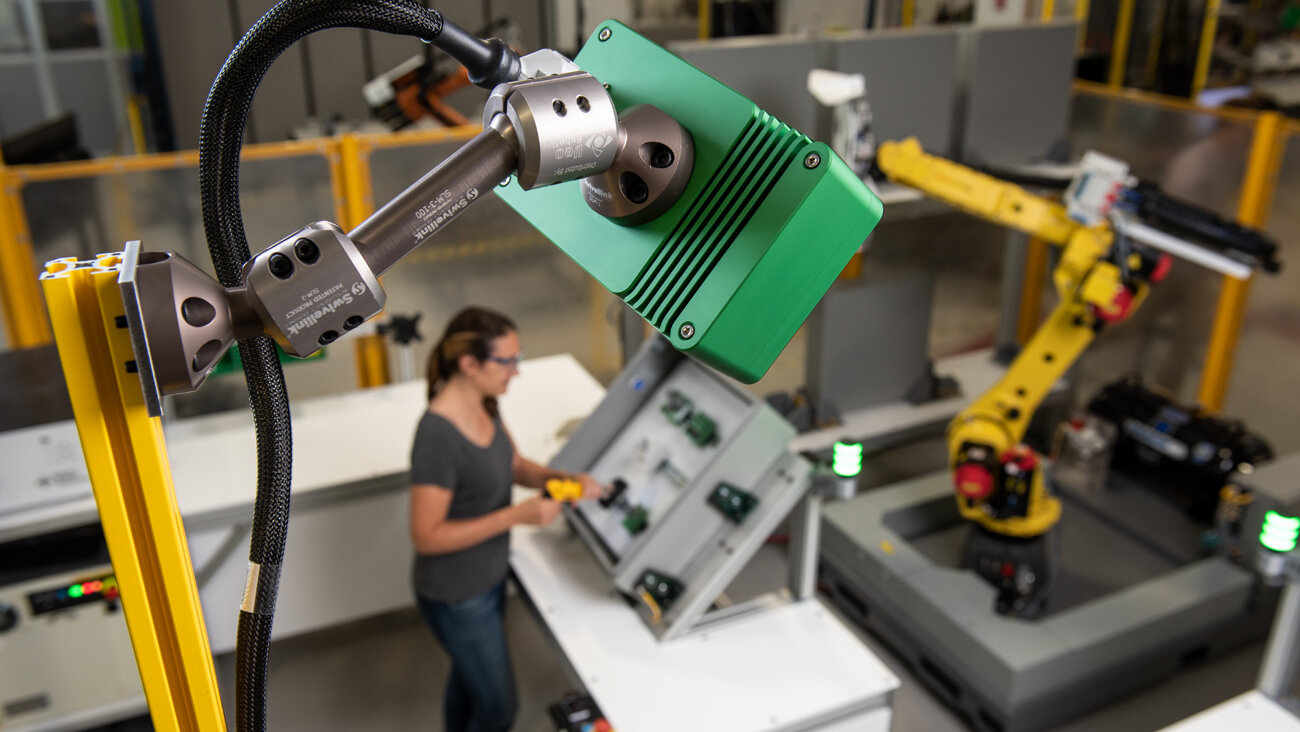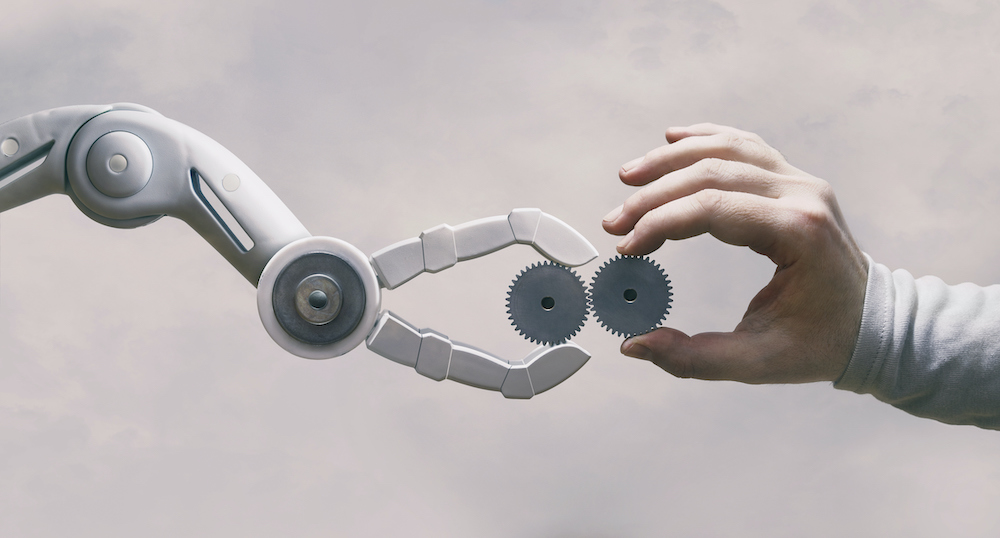Robots have always found it a challenge to work with people and vice versa. Two people on the cutting edge of improving that relationship joined us for TC Sessions: Robotics to talk about the present and future of human-robot interaction: Veo Robotics co-founder Clara Vu and Robust.ai founder Rod Brooks (formerly of iRobot and Rethink Robotics).
Part of the HRI challenge is that although we already have robotic systems that are highly capable, the worlds they operate in are still very narrowly defined. Clara said that as we move from “automation to autonomy” (a phrase she stressed she didn’t invent) we’re adding both capabilities and new levels of complexity.
“We’re moving … from robotic systems that do exactly what they were told to do or can perceive a very specific very low-level thing, to systems that have a little bit more autonomy and understanding,” she said. “The system that my company builds would not have been possible five years ago, because the sensors that we’re using and the processors that we’re using to crunch that data just didn’t exist. So as we do have better sensors and more processing capabilities, we’re able to, as you said, understand a little bit more about the world that we’re in and sort of move the level of robotic performance up a notch.”
Brooks emphasized the under-the-hood complexity in the “no-code” tools his new company is putting in warehouses.
“We have lots of code; the customers don’t have to code — that’s the difference,” he said. “You know, 80% of all warehouses in the U.S. have zero automation, when a conveyor belt would count as automation. 80% don’t even have that. We’re trying to put robots, intelligent robots in there, we don’t want to ask them to understand intelligent robots and programming and stuff when they’ve had zero automation. So we’ve got to make it easy for them.”

It’s part of a change to the overall ecosystem that Brooks sees happening, having to do with the steady march of computational improvement giving way to a more creative era.
“I’ve been saying that we’re in a golden age of computer architecture. Because since 1965, everyone had to hold to Moore’s Law. They knew they had to make double the speed, double the memory, double this on this day, or otherwise, their competitors would get them. So they couldn’t do anything new and weird,” he explained. “With the end of Moore’s law, they’re now having to do new and weird stuff. These are things we couldn’t do two years ago. And it’s because there’s change in computer architecture.”
That may be good, because the things robots are expected to do are getting weirder as well, relying more and more on an AI that isn’t quite up to the task.
“I think that in robotics in general, the robotics problems get exponentially more difficult the more uncontrolled the environment is, and the more various the task is,” said Vu. “So something that would be very simple in a single task and a fixed environment becomes AI complete, we’ll call it, in an outdoor environment that’s unstructured. And it’s not just a little bit harder. It’s not just, well you have this today and, in a couple of years, you’ll have that. It could be decades harder.”

As for the domain of collaborative robots, or cobots, Brooks recalled his time at Rethink Robotics as valuable and even successful despite the company eventually folding.
(An aside before his answer proper: “First, I have to say Clara is smarter than me, because I tried to get her to work, she was a consultant at Rethink, but she wouldn’t join. So she’s smarter than me. Where were we?”)
“I refer to Rethink as a complete artistic success,” he said. “It changed what people thought was possible and other people are doing. We were too early in some sense, and we made a fatal error in not sticking with the original conception, which was to not put robots in places where robots already were, but to put them in other places. Because as soon as we went where they already were, there were expectations of what they should do. And that pulled us away from what our primary mission was.”
Vu agreed, saying Rethink had shaken the industry even if it wasn’t a commercial success, noting that the idea for Veo and her co-founder both essentially rose out of Brooks’s company:
“The idea of collaborative robotics, as far as I know, it came out of Rethink. How could robots be different than they are? What could they do that they can’t do today? And in particular, how could robots work with people? And how could that actually make the robots more valuable?”
It’s the goal of Veo to take the cobot idea to the next level:
“Cobots have totally transformed the industry. There’s I think 200,000 of them out there, it’s growing at 30% a year — all the major robot manufacturers now make cobots as well,” she said. “And we’re trying to really take the next step and say, you know, what the ideas behind Rethink have done for smaller, lighter weight robots … We want to do that for the big powerful robots as well, and the way to do that is through computer vision, that’s now it wasn’t possible 10 years ago.”
We covered many more topics in our discussion, so be sure to check out the full interview below.






























Comment